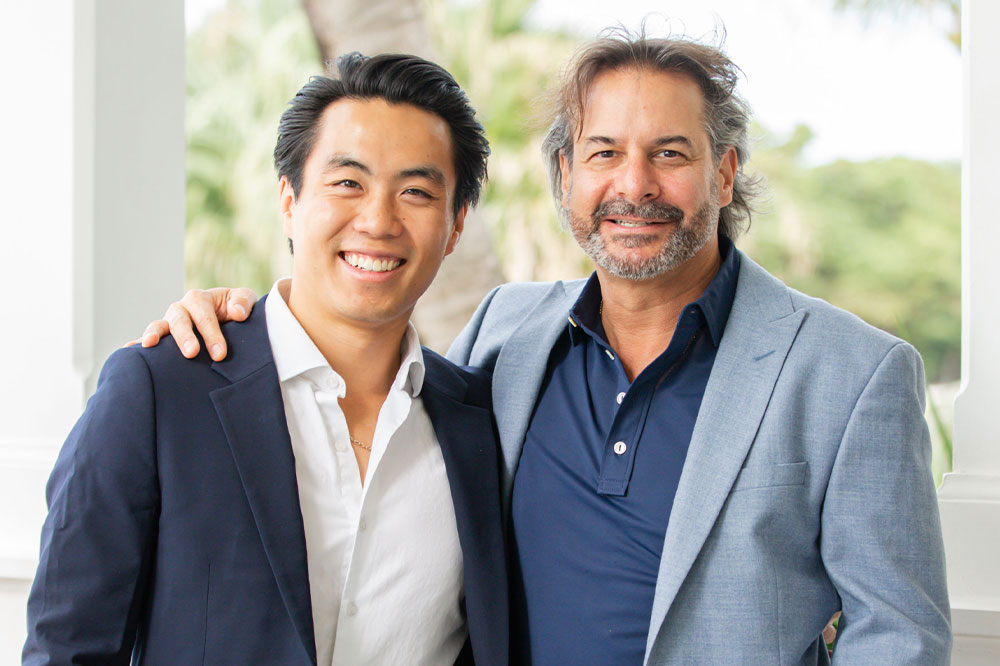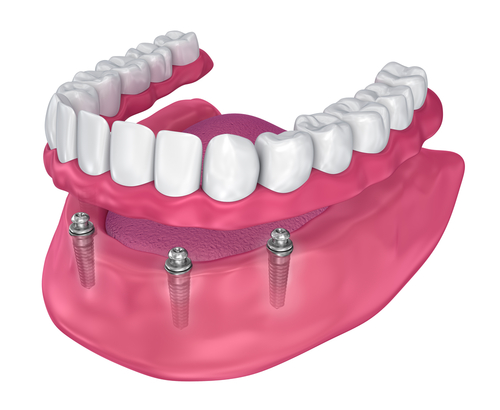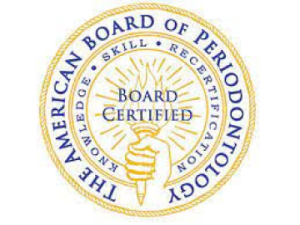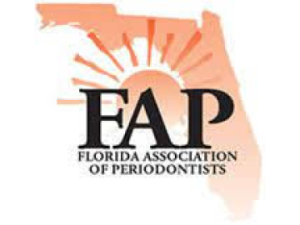Overdentures are a type of dental prosthesis that can help improve the function and appearance of teeth. They are designed to fit over existing teeth or implants, providing enhanced stability and comfort. In this comprehensive guide, we will dive into all aspects of overdentures. We will define what they are and how they differ from traditional dentures. We will also discuss the role of implants in overdenture retention, the types of overdentures available, and the procedure for fitting them. Additionally, we will explore the benefits of choosing overdentures, such as improved speech and eating capabilities, bone retention, and aesthetics. Lastly, we will talk about maintenance considerations and factors to consider when deciding if overdentures are the right choice for you.
Defining Overdentures
Preserving remaining natural teeth, overdentures are removable dental prostheses that enhance oral health and overall satisfaction. They provide extra support and stability and improve the quality of life without needing a fixed prosthesis. Overdentures are a popular option for tooth replacement, offering flexibility and comfort.
Overdentures vs. Traditional Dentures
While traditional dentures depend on soft tissue for support, overdentures utilize remaining natural teeth to provide stability. Additionally, implant-supported overdentures are crucial in reducing bone resorption and minimizing jaw bone loss over time, ultimately offering a more stable and comfortable fit. This stark contrast highlights how overdentures offer enhanced support and oral health benefits compared to traditional dentures.
The Role of Implants in Overdentures
Implant-supported overdentures offer secure stability and prevent jaw bone loss, enhancing chewing ability. These attachments connect to dental implants, providing a solid foundation for natural teeth. Dental insurance often covers the cost, making it a viable option for tooth replacement. According to a literature review in the Journal of Prosthetic Dentistry, implant overdentures in the posterior regions minimize bone resorption, offering long-term benefits.
Types of Overdentures
Overdentures are customized to suit individual preferences, including implant-supported overdentures using dental implants, bar-retained overdentures supported by a metal bar, and ball-retained overdentures utilizing ball-shaped attachments. These variations cater to patients with missing or remaining natural teeth seeking stability and comfort. Different types of overdentures offer options for implant, partial, and complete dentures customized based on patient needs and preferences.
Implant-Supported Overdentures
Implant-supported overdentures enhance oral functionality by providing natural teeth-like support and stability. This results in overall patient satisfaction and reduces bone resorption. The attachments of these overdentures connect to individual implants, ensuring enhanced stability and comfort. Additionally, implant-supported overdentures offer improved speech and eating capabilities, making them a favorable option for individuals with missing teeth.
Bar-Retained Implant-Supported Overdentures
Bar-retained implant-supported overdentures utilize a metal bar for stable support and easy removal. These dentures offer enhanced stability by distributing the load across dental implants, providing secure support and improved comfort for wearers. The metal bar design ensures that the overdentures remain stable during use, allowing individuals with missing teeth to experience natural oral function and increased satisfaction.
Ball-Retained Implant-Supported Overdentures
Ball-retained implant-supported overdentures utilize ball-shaped attachments that connect to dental implants in the jaw. This design provides stable and secure support, offering natural tooth-like stability and improved chewing ability. Patients experience increased satisfaction and better oral health with these overdentures, making them a popular choice in cosmetic dentistry. The American Dental Association recommends them for those seeking reliable tooth replacement options.
The Overdenture Procedure
The process of overdenture fitting commences with a comprehensive treatment plan to ensure optimal results. Surgical implant placement, involving meticulous precision, is then undertaken to facilitate the attachment of overdentures. This surgical procedure is critical for successful overdenture installation and warrants careful assessment and planning. Preparatory measures are taken to guarantee sufficient bone support for the overdentures, ensuring a successful outcome.
Preparatory Steps for Overdenture Installation
Evaluating bone quality and quantity is paramount for the success of overdenture surgery. A meticulously planned treatment includes dental implant placement to ensure the readiness for overdenture fitting. Preparatory steps involve detailed dental care, assessing oral health, and ensuring adequate bone support for implant overdentures. This comprehensive approach optimizes the outcome of the overdenture installation procedure.
The Process of Fitting Overdentures
The attachment of overdentures to individual implants ensures stability and support. Meticulous adjustments are made for comfort during the fixed restoration process, providing a natural tooth-like feel. Evaluation of the oral cavity is crucial to ensure a precise fit, offering enhanced support in the posterior regions. The fitting process ensures a stable prosthesis tailored to each individual’s needs.
Benefits of Choosing Overdentures
Overdentures enhance stability and comfort for individuals with missing teeth or complete dentures. Improved oral health, quality of life, and preservation of bone structure are associated with overdentures, benefiting those with remaining teeth. Additionally, overdentures positively impact overall health by preventing further tooth loss and offering extra support to remaining natural teeth, making them a viable option for many individuals.
Enhanced Stability and Comfort
Enhanced stability and comfort are critical benefits of overdentures, surpassing traditional dentures. Patients experience improved satisfaction and oral function with reduced soft tissue irritation. Implant-supported overdentures provide superior retention and stability during daily activities. Additionally, overdentures minimize bone loss in the jaw, promoting overall oral health. This advanced solution significantly enhances stability and comfort for those with missing teeth.
Improved Speech and Eating Capabilities
Enhanced stability of overdentures supports improved pronunciation and articulation, enhancing speech for edentulous individuals. Proper chewing function contributes significantly to oral health, ensuring better dietary choices and nutrition. Concerns about denture slippage during eating or speaking are reduced with the enhanced stability of overdentures, allowing for improved biting force and confidence in daily activities.
Bone Retention and Aesthetics
Overdentures preserve bone density, prevent resorption, maintain natural facial aesthetics, and support remaining teeth. These benefits contribute to long-term oral health and an appealing appearance. Additionally, overdentures offer a natural-looking dental restoration option, enhancing both functionality and aesthetics. Overdentures can effectively prevent a sunken facial appearance while supporting oral function, making them a comprehensive choice for tooth replacement.
Maintenance Considerations for Overdentures
Proper maintenance is crucial for preserving overdentures. Following recommended oral hygiene practices and regular dental check-ups are essential for the longevity and functionality of implant-supported overdentures. Routine examinations and adjustments by dental professionals contribute to overall oral health and the prosthetic’s durability. By prioritizing maintenance, overdenture wearers can ensure optimal dental care and prolong the lifespan of their prosthetics.
Cleaning and Caring for Your Overdentures
Maintaining the cleanliness and hygiene of overdentures is crucial for preventing oral health issues. Specific care instructions from dental providers should be followed to ensure effective cleaning methods. Daily oral care routines are essential in upholding overdenture maintenance, contributing to their durability. Regular cleaning and care practices are necessary for maintaining oral hygiene and preventing potential issues.
Regular Dental Check-Ups for Overdenture Health
Regular dental check-ups are crucial in monitoring the overall health and function of overdentures. These routine visits enable dentists to assess the condition of overdentures, facilitating early detection of potential issues with implant-supported overdentures. Professional dental evaluations are essential for ensuring the stability and longevity of overdentures. Regular oral examinations and dental cleanings are vital for optimal overdenture health.
Are Overdentures the Right Choice for You?
Oral health, bone structure, and treatment plans influence overdenture suitability. Studies show high survival rates and patient satisfaction. Overdentures may be suitable for edentulous patients with insurance plans. They offer an alternative to fixed implant prosthesis options. Evaluation of oral health needs is crucial in determining overdenture suitability.
What Factors Should You Consider Before Opting for Overdentures?
Factors to consider before opting for overdentures include evaluating the type of attachments available, assessing the surgical process and implant support required, and considering the condition of remaining natural teeth and dental health factors. Understanding different types of overdentures and their benefits is crucial for making an informed decision.
Contact Palm Beach Periodontics to Schedule
Overdentures offer a superior alternative to traditional dentures. Overdentures provide enhanced stability, comfort, and functionality by utilizing dental implants for support. They improve speech and eating capabilities while promoting bone retention and maintaining a natural aesthetic. Following proper maintenance and care for your overdentures is essential, including regular cleaning and dental check-ups. This will ensure the longevity and health of your overdentures. Before deciding if overdentures are the right choice for you, consider factors such as your oral health, budget, and personal preferences. Consulting with a dental professional will help determine the best action for your specific needs. Take the next step towards a healthier and more confident smile by exploring the benefits of overdentures today. Book your appointment with our experienced team to discuss your options and find the perfect solution.












